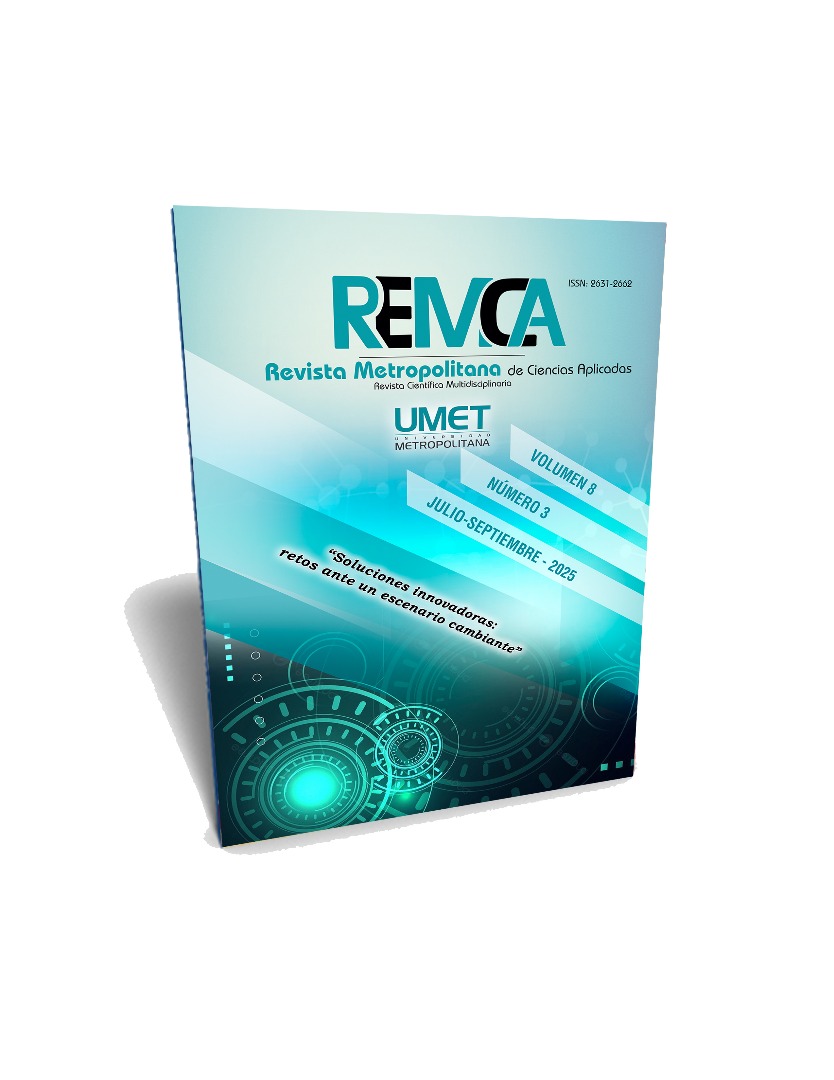Classification of biotechnology and genetic manipulation crimes in the Ecuadorian Comprehensive Organic Criminal Code
DOI:
https://doi.org/10.62452/hthj1s85Keywords:
Biotechnological regulation, genetic manipulation, criminal typification, biosecurity, regulatory frameworkAbstract
The rapid development of biotechnology and genetic manipulation poses regulatory challenges in Ecuador, a country whose biodiversity is of global importance. Despite the constitutional prohibition of transgenic crops, current regulations present legal gaps that could allow the misuse of these technologies. The objective of this study was to analyze the effectiveness of the Comprehensive Organic Penal Code (COIP) and the Constitution in regulating biotechnology and genetic manipulation, identifying regulatory deficiencies, and proposing improvements. A qualitative approach with a cross-sectional design was adopted, employing bibliographic research and a non-probabilistic convenience sampling. Twenty experts in criminal and constitutional law were surveyed, of whom five were interviewed in depth. The results reveal that Article 401 of the Constitution and Article 214 of the COIP are insufficient to address crimes related to genetic manipulation. Gaps in criminal typification, lack of proportional sanctions, and an ambiguous regulatory framework that could compromise biosecurity and public health were identified. Additionally, supervisory bodies lack the authority to effectively oversee the use of biotechnology. It is concluded that a comprehensive reform is necessary to strengthen criminal regulation, increase sanctions, and establish stricter control mechanisms. Moreover, it is recommended to improve public education on the risks and benefits of biotechnology to ensure its responsible use and alignment with environmental protection and human rights.
Downloads
References
Acosta, S., & Mejía, A. (2019). Alcance del bien jurídico tutelado de la vida y la integridad personal desde la perspectiva de los delitos de manipulación genética. (Trabajo de titulación). Unidad Central del Valle Del Cauca.
Álvarez, A. (2016). La terapia génica somática como delito contra la salud en el Código Orgánico Integral Penal: planteamiento para limitar la responsabilidad del médico genetista. (Trabajo de titulación). Universidad de las Américas.
Atencio González, R. E., Molina Mora, J. F., & Andrade Olvera, G. A. (2022). La legislación ecuatoriana y los derechos humanos desde su perspectiva. Universidad Y Sociedad, 14(S3), 498–503. https://rus.ucf.edu.cu/index.php/rus/article/view/2979
Belov, O. A., Spiridonova, Y. N., & Odintsov, A. I. (2020). Genetic Engineering: Issues of Criminal Law Regulation. Penitentiary Science, 14(4), 556-560. https://cyberleninka.ru/article/n/genetic-engineering-issues-of-criminal-law-regulation
Ecuador. Asamblea Nacional Constituyente. (2008). Constitución de la República del Ecuador. Registro Oficial 449. https://www.oas.org/juridico/pdfs/mesicic4_ecu_const.pdf
Ecuador. Asamblea Nacional. (2014). Código Orgánico Integral Penal. Registro Oficial Suplemento 180. https://www.defensa.gob.ec/wp-content/uploads/downloads/2021/03/COIP_act_feb-2021.pdf
Fetyukov, F. V. (2020). Development of legislation on human cloning: world experience and a promising legal model for modern Russia. RUDN Journal of Law, 24(4), 881-900. https://doi.org/10.22363/2313-2337-2020-24-4-881-900
Guryleva, M. E., & Khamitova, G. M. (2019). Human cloning ethical and legal issues. Kazan Medical Journal, 100(6), 992-1000. https://doi.org/10.17816/KMJ2019-992
Hernández-Sampieri, R., Fernández-Collado, C., & Baptista-Lucio, P. (2014). Metodología de la Investigación. Mc Graw Hill.
Kvashis, V., Tsokolova, O., & Sluchevskaya, Y. (2022). Gene Editing and the Environment (the International Legal Challenges). (Ponencia). 14th Session of Euro-Asian Law Congress “The value of law” 2021. Ekaterinburg, Russia.
Torres Darias, N. V. (2011). Clonación y clonación humana: La parábola del sexto día. Encuentros En La Biología, 4(133), 19–23. https://revistas.uma.es/index.php/enbio/article/view/18468
Velayos Castelo, C. (2002). Clonación humana: las preguntas «por qué no» y «por qué sí». Isegoría, (27), 193–209. https://doi.org/10.3989/isegoria.2002.i27.562
Downloads
Published
Issue
Section
License
Copyright (c) 2025 Vanessa Lisseth Montenegro-Altamirano, Brayan Hamilton Chiles-Paucar, Estalin Rene Portilla-Paguay (Autor/a)

This work is licensed under a Creative Commons Attribution-NonCommercial-ShareAlike 4.0 International License.
Authors who publish in Revista Metropolitana de Ciencias Aplicadas (REMCA), agree to the following terms:
1. Copyright
Authors retain unrestricted copyright to their work. Authors grant the journal the right of first publication. To this end, they assign the journal non-exclusive exploitation rights (reproduction, distribution, public communication, and transformation). Authors may enter into additional agreements for the non-exclusive distribution of the version of the work published in the journal, provided that acknowledgment of its initial publication in this journal is given.
© The authors.
2. License
The articles are published in the journal under the Creative Commons Attribution-NonCommercial-ShareAlike 4.0 International License (CC BY-NC-SA 4.0). The terms can be found at: https://creativecommons.org/licenses/by-nc-sa/4.0/deed.en
This license allows:
- Sharing: Copying and redistributing the material in any medium or format.
- Adapting: Remixing, transforming, and building upon the material.
Under the following terms:
- Attribution: You must give appropriate credit, provide a link to the license, and indicate if any changes were made. You may do this in any reasonable manner, but not in any way that suggests the licensor endorses or sponsors your use.
- NonCommercial: You may not use the material for commercial purposes.
- ShareAlike: If you remix, transform, or build upon the material, you must distribute your creation under the same license as the original work.
There are no additional restrictions. You may not apply legal terms or technological measures that legally restrict others from doing anything the license permits.




